North Africa
North Africa is a cultural subcontinent in the northern part of Africa. It is sometimes defined as extending from the shores of the Atlantic, from Morocco to the west, to the Suez Canal and to the Red Sea, in Egypt to the east. The most commonly accepted definition includes from East to West : Egypt, Sudan (sometimes included in East Africa), Libya, Tunisia, Algeria, Morocco, Western Sahara and Mauritania (often included in West Africa). The United States Census Bureau defines North Africa as Algeria, Libya, Egypt, Morocco and Tunisia. The countries of North Africa share a common ethnic, cultural and linguistic identity specific to this region, such as the language (Arabic), as well as religion (Islam). North Africa has been inhabited by Berbers since the beginning of history, while the eastern part of North Africa was home to the ancient Egyptians, who maintained close relations with the Berbers during antiquity. After the Muslim conquest in the 7th century, the region underwent an Arabization and Islamization process which has since redefined its cultural landscape. The distinction between North Africa and sub-Saharan Africa is historically and ecologically significant due to the natural barrier created by the Sahara Desert for much of modern history. North Africa is populated by Arabs and Berbers, while sub-Saharan Africa is populated by blacks. From 4000-3600 BC. AD, following the abrupt desertification of the Sahara due to gradual changes in Earth’s orbit, this barrier culturally separated the North from the rest of the continent. As the maritime civilizations of the Phoenicians, Greeks, Romans, Muslims and others facilitated communication and migration across the Mediterranean Sea, North African cultures were more closely linked to Southwest Asia and Europe than in sub-Saharan Africa. Islamic influence in the region is also significant, and North Africa is a major part of the Muslim world.
An increasing number of researchers have postulated that North Africa, rather than East Africa, served as a point of exit for modern humans who first left the continent during migration from Africa.
Etymology
North Africa is also called White Africa. This term contrasts with that of “black Africa”, designating sub-Saharan Africa. Georg Wilhelm Friedrich Hegel also called it “European Africa” while Elisha Reclus saw in North Africa an appendage of the Latin Arc. The expression white Africa referred either geographically to the north of the Sahara or, ethnically, to the “white” minorities of “black” Africa : Afrikaners in the south, Tuaregs in the Sahel.
Geography
The Atlas mountains extend over a large part of Morocco, northern Algeria and Tunisia, are part of the fold mountain system which also crosses much of southern Europe. They retreat to the south and east, becoming a steppe landscape before meeting the Sahara Desert, which covers more than 75% of the region. The sediments of the Sahara cover an ancient plateau of crystalline rock, some of which are more than four billion years old. South of the Atlas is the arid and desert expanse of the Sahara Desert, the largest sandy desert in the world. In places, the desert is cut by irregular rivers called wadis (or wadis) which do not run until after the precipitation but are generally dry. The main reliefs of the Sahara include ergs, large seas of sand which sometimes form immense dunes ; the hammada, a flat rocky plateau without soil or sand ; and the reg, a flat surface made up of gravel or small stones. The Sahara covers the southern part of Morocco, Algeria and Tunisia, and most of Libya. Only two regions of Libya are outside the desert : Tripolitania to the northwest and Cyrenaica to the northeast. Most of Egypt is also desert, with the exception of the Nile and the irrigated land along its banks. The Nile Valley forms a narrow fertile streak that spans the entire length of the country. The sheltered valleys in the Atlas Mountains, the Nile Valley and Delta, and the Mediterranean Sea are the main sources of fertile agricultural land. A wide variety of valuable crops, including grains, rice and cotton, and woods such as cedar and cork, are grown. Typical Mediterranean cultures, such as olive, figs, dates and citrus fruits, also thrive in these regions. The Nile Valley is particularly fertile, and most of the population in Egypt lives near the river. Elsewhere, irrigation is essential to improve crop yields on the margins of the desert.
North Africa’s countries
-
- Algeria
- Morocco
- Western Sahara
- Tunisia
- Libya
- Egypt
- Mauritania
-
Algeria
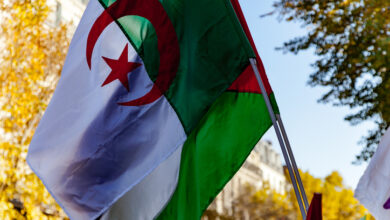
Algerian Government To Hold Constitution Referendum On November 1
The Algerian government has set November 1 as a date to hold a referendum on a new constitution that is…
Read More » -
Libya
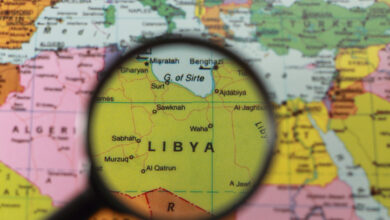
Libya: Warring Rival Parties Declare Immediate Ceasefire, Calls For Elections
Libya’s warring rival administrations on Friday announced the cessation of all fighting in the territory and called for the holding…
Read More » -
Egypt
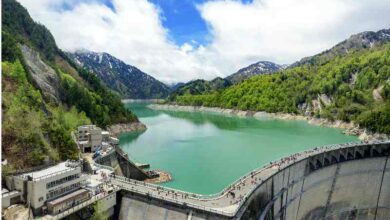
Sudan, Egypt, Ethiopia To Resume African Union-Led Negotiation Talks On Tuesday
Sudan, Egypt, and Ethiopia have agreed to resume negotiation talks over the Nile dam on Tuesday and present draft proposals…
Read More » -
Tunisia
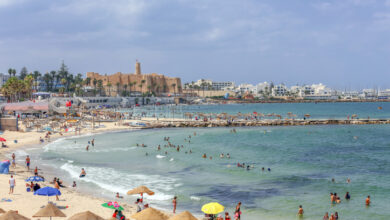
Tunisia Tightens Restriction On Arrival From France, Belgium, Iceland
Tunisia on Tuesday announced the tightening of anti-coronavirus restrictions on arrival from France, Belgium, and Iceland starting Saturday, Aug. 15,…
Read More » -
Mauritania
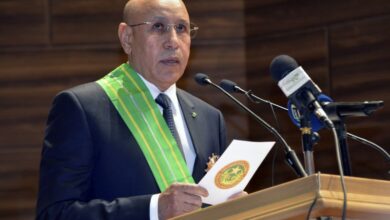
Mauritania: President Mohamed Ould Ghazouani Appoints New Government
Mauritania’s President Mohamed Ould Ghazouani on Sunday appointed a new government after the names of some of his ministers appeared…
Read More » -
Algeria
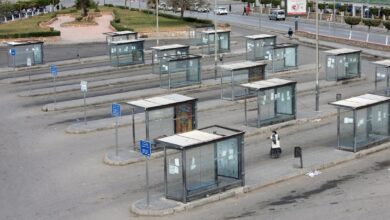
Algeria Eases Coronavirus Restrictions, Lifts Travel Curbs, Shortens Overnight Curfew
Algeria has eased coronavirus lockdown restrictions including lifting some travel curbs, shortening an overnight curfew, and allowing large mosques to…
Read More » -
Egypt
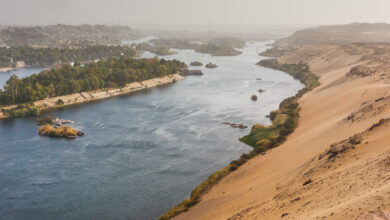
Nile Dam: South Africa Urges Egypt, Ethiopia, Sudan To Continue With Tripartite Talks
As threats of suspension and walkout loom over Nile dam tripartite talks, South Africa on Thursday urged Egypt, Ethiopia, and…
Read More » -
Mauritania
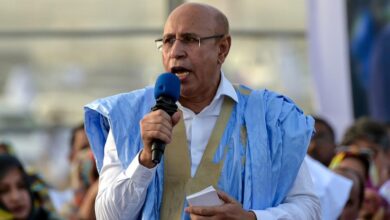
Mauritanian President Ghazouani Appoints Mohamed Ould Bilal As New PM
Mauritanian President Mohamed Ould Ghazouani on Thursday announced veteran public administrator Mohamed Ould Bilal as the country’s prime minister, reported…
Read More » -
Egypt

Egypt To Withdraw From Latest Round Of Nile Dam Negotiation Talks With Ethiopia, Sudan
Egypt’s government on Tuesday said it is willing to withdraw from the latest round of tripartite negotiations with Ethiopia and…
Read More » -
Libya
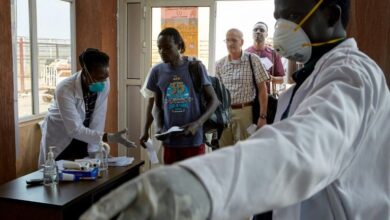
Libya: GNA Announces A full Lockdown Amid Surge In Coronavirus Cases
Libya’s internationally recognized Government of National Accord (GNA) on Thursday said it would impose a full lockdown in the parts…
Read More » -
Libya
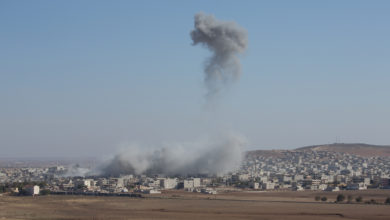
Libya: UN Support Mission Reports 358 Civilian Casualties From April To June
The United Nations Support Mission in Libya (UNSMIL) reported there have been 358 civilian casualties in Libya, including women and…
Read More » -
Tunisia

Tunisia: President Kais Saied Designates Interior Minister Hichem Mechichi As New PM
Tunisia’s President Kais Saied designated the country’s current Interior Minister Hichem Mechichi as the new prime minister to succeed Elyes…
Read More » -
Libya

Libya: AFRICOM Claims Russia Sending Military Equipment In Breach Of An Arms Embargo
The U.S. military command for Africa (AFRICOM) on Friday said it has evidence that proves Russia is still sending more…
Read More » -
Egypt

Nile Dam: Ethiopia, Egypt, Sudan Reach ‘Major Common Understanding’ On GERD
Leaders from Ethiopia, Egypt, and Sudan on Tuesday agreed to resume talks to break a deadlock on the controversial Nile…
Read More » -
Egypt
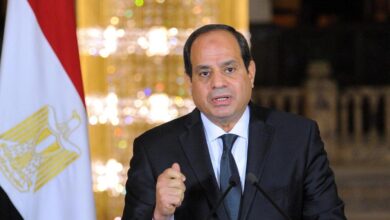
Egyptian Parliament Approves Possible Military Intervention In War-Torn Libya
Egyptian parliament on Monday gave a green signal to President Abdel-Fattah al-Sisi’s proposal for possible military intervention in Libya to…
Read More » -
Libya

Libya: France, Germany, Italy Threatens To Use Sanctions Against Foreign Countries
The leaders of France, Germany, and Italy have threatened to use sanctions against foreign countries that continued to violate a…
Read More » -
Libya
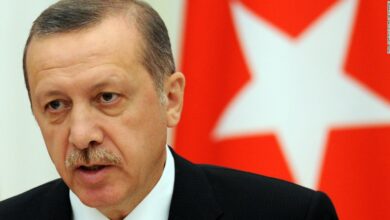
Turkish President Condemns Egypt, UAE For Supporting Libya’s Khalifa Haftar
Turkish President Recep Tayyip Erdogan on Thursday condemned Egypt and the United Arab Emirates (UAE) for supporting Libyan eastern commander…
Read More » -
Egypt
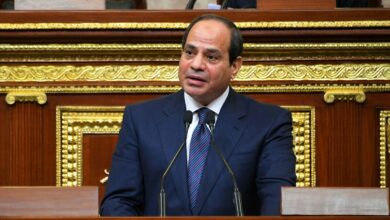
Egypt’s President Says Cairo Will Not Stand Idle To Threat To Egyptian & Libyan Security
Egypt’s President Abdel Fatah El Sisi said on Thursday that his government would not sit idle in the face of…
Read More » -
Tunisia

Tunisian Prime Minister Elyes Fakhfakh Steps Down Trigerring Political Crisis
Tunisian Prime Minister Elyes Fakhfakh stepped down on Wednesday posing a major blow to the country’s ongoing political deadlock, reported…
Read More » -
Libya
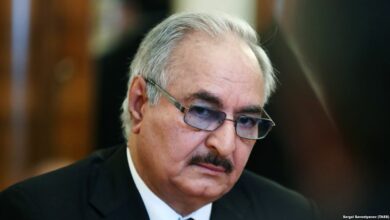
Libya: Haftar’s Parliament Resolution Approves Egyptian Military Intervention
Libya’s eastern-based parliament on Monday passed a resolution that approves Egypt’s direct military to intervene in the Libyan conflict to…
Read More » -
Tunisia

Tunisian Prime Minister Considering Cabinet Reshuffle Amid Row With Ennahda
Tunisian Prime Minister Elyes Fakhfakh on Monday said he is seeking to carry out a cabinet reshuffle soon, amid a…
Read More » -
Algeria

Algeria Re-Imposes Travel Restrictions In A Bid To Curb Spread Of Novel Coronavirus
Algeria government on Thursday re-imposed travel restrictions in the country starting Friday testing in a bid to stop a rise…
Read More » -
Libya
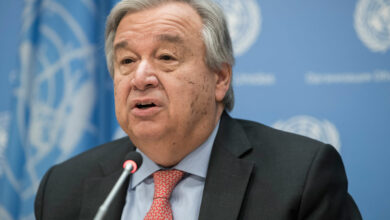
Libya Conflict: U.N. Chief Warns Foreign Interference Is At Unprecedented Levels
United Nations Secretary-General Antonio Guterres on Wednesday warned the Security Council that foreign countries’ interference in the ongoing conflict in…
Read More » -
Libya

Libya: Italian Foreign Minister Luigi di Maio Meets GNA Head Fayez Al-Sarraj In Tripoli
Italy’s Foreign Minister Luigi di Maio on Wednesday made an unannounced visit to Libya’s capital, Tripoli, where he met with…
Read More » -
Libya

Libya: UN Human Rights Council Orders Investigation Into Human Rights Abuses
The United Nations Human Rights Council adopted a resolution on Monday ordering a fact-finding mission to Libya to establish facts…
Read More »

